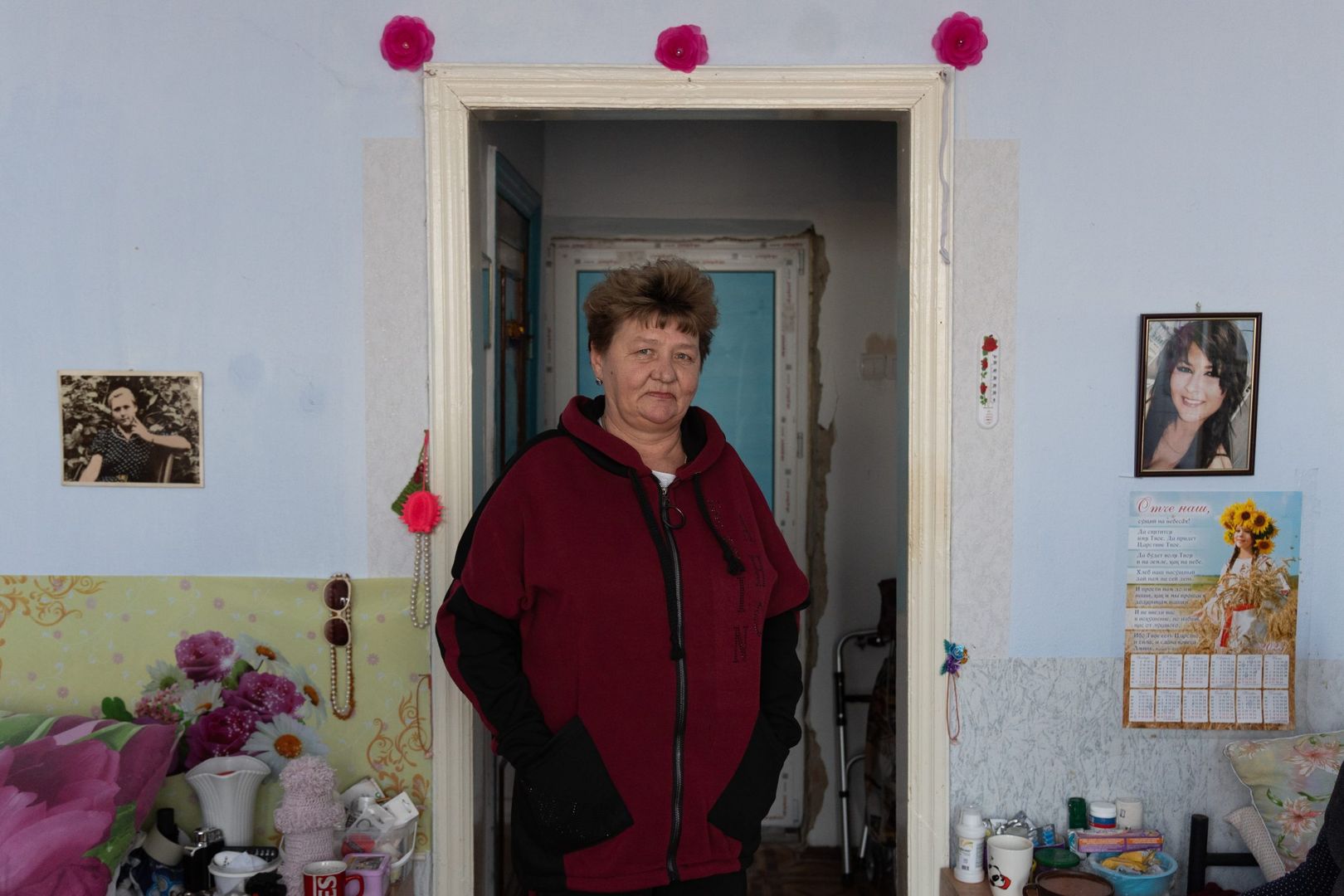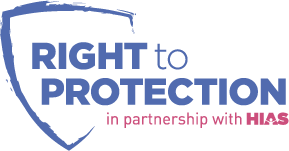On a warm summer day in Kherson as 53-year-old Halyna Bila was standing in front of her house having a cigarette her life was about to change. She had been living near a war, she had never imagined would happen in her own backyard, for some months already. From her house in Kherson Oblast, she had been listening to bombs falling, but always outside her fence until that day in June 2022, where she stepped outside and lit her cigarette.
“My house was suddenly struck by artillery. In just one moment, my home was destroyed. I was badly injured and was evacuated from the village,” says Halyna.

In that one incident Halyna lost everything, including all her personal documents. She is now receiving legal assistance from the DCA’s Ukrainian partner organization Right to Protection to restore all those documents.
“I was evacuated without any possessions. I am helpless without my documents. I can’t access compensation to rebuild my house as I don’t have proof of ownership. I can’t receive benefits for my war-related injury either,” explains Halyna, who is living on a pension of 56 USD per month.

Several villages in Kherson Oblast have been severely impacted by the war in Ukraine.
The project supported by the EU is helping Halyna to establish the connection between her disability and the hostilities and obtaining the necessary documents to claim inheritance of the damaged house, enabling her to seek compensation for the property damage.
Right to Protection
Right to Protection is an internationally recognised actor in the field of global humanitarian aid and development. The organisation advocates for the protection of internally displaced persons’ rights and provides free legal assistance on issues related to internal displacement and/or conditioned by the conflict.
Right to Protection works to advance the common cause of all humanitarian actors in Ukraine: to ensure a safe and dignified life for all people living within Ukraine.
First step to rebuilding Halyna’s life
After being evacuated, Halyna was evacuated and spent four months in a hospital being treated for her severe injuries. Upon her discharge from the hospital, she was without possessions and bound to a wheelchair. Luckily, she found a new home quickly at the Mykolaiv Geriatric Nursing Home.

The rooms are small, and the halls are dark, but it is safe and feels far away from the war, explains Halyna. She is one of 43 new residents at the nursing home, who have been displaced from Kherson and Mykolaiv – mainly because their houses have been destroyed. Many of them are living with severe physical traumas.
“There are a lot of activities and rehabilitation offers here. I came in a wheelchair just over a year ago, but I have been training, and managed to move on to crutches and now I am able to walk by myself,” says Halyna.
While she has been training her body to regain its strength, lawyers and employees at Right to Protection have been working hard to restore Halyna’s documents. The first step was getting Halyna a new passport, which she is now in possession of.
“I would really love to return to my home. But it is completely destroyed. There is nothing left, and I need the help, if I am to rebuild my home and my life. I miss my old life, my friends, my family and my home so much. But just getting my passport back, has given me renewed hope,” says Halyna.

How is DCA expanding activities in Mykolaiv?
The European Union has supported DCA Ukraine with funds to reach over 150,000 Ukrainians in the Mykolaiv region.
DCA Ukraine will identify and survey hazardous areas, map protection needs and risks, conduct tailored explosive ordnance risk education (EORE), and identify cases for legal aid, and social support services.
The target group for the project includes war-affected civilians in the Mykolaiv region, specifically those with damaged homes, former hostages, torture victims, and people living with injuries from the war. The project also extends assistance through DCA’s Ukrainian partner organisation Right to Protection to the families of deceased or missing individuals, as well as supporting the elderly, internally displaced persons, and first-line responders.



